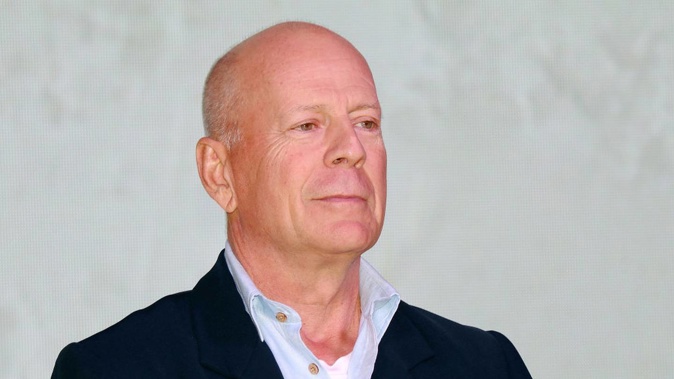
Bruce Willis has been diagnosed with frontotemporal dementia - FTD - after battling the brain disorder aphasia for nearly a year.
His family has shared the heartbreaking news in a statement, revealing his condition has “progressed”.
His family’s statement, from his wife Emma Heming, ex-wife Demi Moore, and his children was shared on The Association for Frontotemporal Degeneration website and began: “Our family wanted to start by expressing our deepest gratitude for the incredible outpouring of love, support and wonderful stories we have all received since sharing Bruce’s original diagnosis.
“Since we announced Bruce’s diagnosis of aphasia in spring 2022, Bruce’s condition has progressed and we now have a more specific diagnosis: frontotemporal dementia (known as FTD).
“Unfortunately, challenges with communication are just one symptom of the disease Bruce faces. While this is painful, it is a relief to finally have a clear diagnosis.
Bruce Willis poses with his daughter Tallulah. Photo / @buuski
Frontotemporal dementia is a term used to describe a set of brain disorders that affects the frontal and temporal lobes of the brain. These parts of the lobes atrophy. The shrinking of these areas of the brain can result in speech problems, emotional issues and changes in personality.
Other frontotemporal dementia symptoms can include loss of motor skills - trouble walking, swallowing and muscle spasms. Symptoms tend to progressively worsen over time.
The causes of FTD are not clear. A few genetic mutations have been associated with the illness, however more than 50 per cent of the people who suffer from the disease have no family history of dementia.
Bruce Willis has now been diagnosed with dementia, his family has shared. Photo / @rumerwillis
Patients usually begin to see symptoms between the ages of 40 to 65, but it can haven an earlier onset. It is the most common type of dementia for people under the age of 60.
Frontotemporal dementia is frequently misdiagnosed as Alzheimer’s disease. There is no singular test that can diagnose the illness, so doctors usually analyse patients’ reflexes, memory, and problem-solving skills among various other components to reach an accurate diagnosis.
At present, there are no treatments or a cure for frontotemporal dementia, but there are various medications that help manage symptoms.
Heming expressed that her husband would want to share his struggle with the disease to help others.
“Bruce always believed in using his voice in the world to help others, and to raise awareness about important issues both publicly and privately,” she said.
“We know in our hearts that - if he could today - he would want to respond by bringing global attention and a connectedness with those who are also dealing with this debilitating disease and how it impacts so many individuals and their families.”
Take your Radio, Podcasts and Music with you

/cloudfront-ap-southeast-2.images.arcpublishing.com/nzme/3GFNU4QR6JFVLFCVELONWBGQRA.PNG)
/cloudfront-ap-southeast-2.images.arcpublishing.com/nzme/BI4XSULDERCJFGVFBLRULTWJ6Y.PNG)








